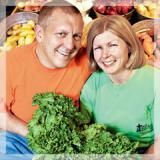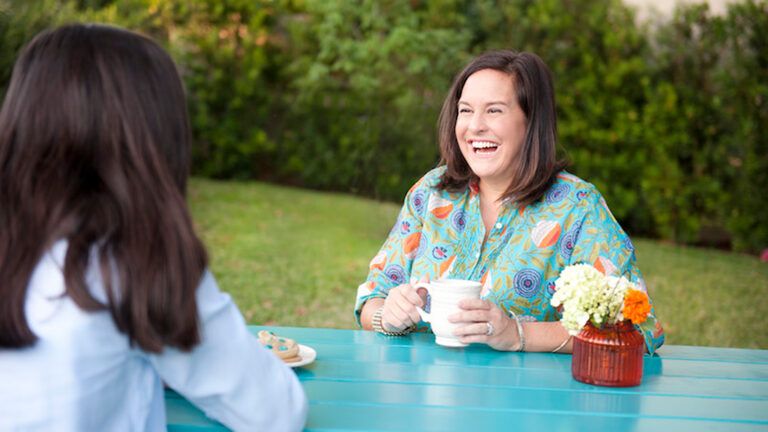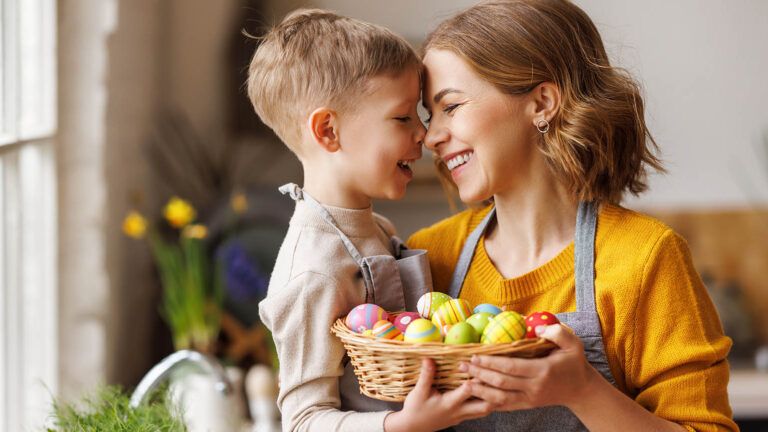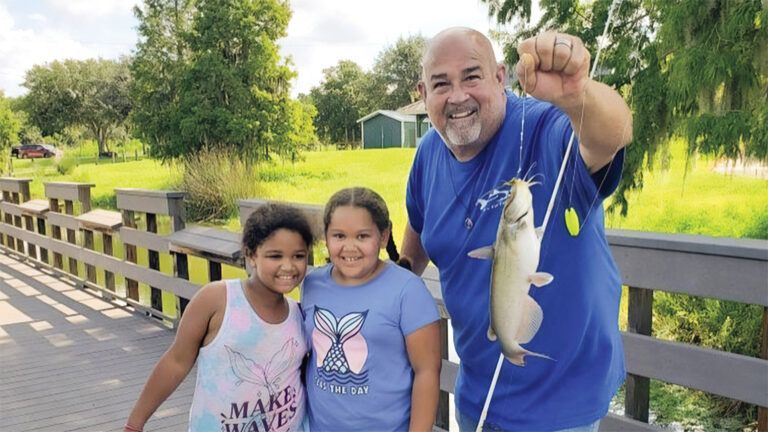“Now what, dad?” my daughter, Katie, asked. She was slumped behind a table laden with corn, green beans, tomatoes and lots—I mean lots—of zucchini. “For Sale: Fresh Garden Vegetables,” read a hand-lettered sign. She and my boys, Gregory and Daniel, had spent the day flagging down cars in front of our semi-rural house outside Baltimore. Now the summer sun was setting, and they hadn’t even made a dent in the vegetables that seemed to burst out of our quarter-acre garden. “We can’t eat all this,” Katie declared. “Do we just throw it away?”
Actually, I’d been asking myself that exact question long before my wife, Carol, and I got the idea to set the kids up with a roadside produce stand. You could say it was the question of my life. I worked downtown as an investment analyst for a bank. But what I really loved was farming. Maybe it was my ancestors, Polish farmers in New England’s Connecticut River Valley. Maybe it was because I felt cooped up behind a desk. All I really wanted to do was get outside, get dirty and make things grow. Problem was, I had no farm, no real experience and I certainly didn’t have the money—it takes millions—to buy the hundreds of acres of land and equipment required to turn a profit in today’s corporate food economy. So I stuffed my dream down and indulged my farming fantasy by running a hand tiller through our garden.
Next morning, I loaded boxes of potatoes, beans and corn into the trunk and drove to work. A few months before, my office had organized a successful volunteer day at a Catholic homeless mission called Our Daily Bread. Maybe they’d want the vegetables. I pulled into an alley and knocked on the mission’s back door. A man opened. “Can I help you?” he asked.
“Um, I’ve got some produce in my trunk,” I said, realizing how strange that sounded. The man’s face immediately brightened. “Fresh produce?” he asked.
I nodded. “From my garden.”
He bustled past me to the trunk and ran his fingers through the green beans. “These are beautiful,” he said. “I’m Raymond, one of the cooks here. Usually all we get are castoffs from supermarkets—not in the best shape. Our guests will love these.”
I helped him carry boxes into the kitchen and again sensed what I’d felt my first time there—a bustling, pervading goodness. Volunteers from various churches were preparing food and talking. I heard laughter from the dining room. I wasn’t a churchgoer, but this felt nothing like any church activity I could picture. I asked Raymond if I could come again with more. “We’ll take anything you’ve got,” he said.
The trips became part of my routine. Their effect on me, though, was anything but. I had a great life—a wonderful wife, terrific kids, rewarding career—but I felt something was missing. Seeking more, I picked up the Bible. Over the next year and a half, I read it twice through. I knew what was missing. God. I became a Christian, and my life, especially the garden and my love of farming, took on a whole new meaning. Jesus said, “For I was hungry and you gave me something to eat…I tell you the truth, whatever you did for the least of these brothers of mine, you did for me.” Those words blew me away.
One night, unable to sleep, I nudged Carol. “What is it?” she mumbled.
“We’re not doing enough,” I said.
She sat up. “Meaning what?”
“Meaning, I’m wondering if we should take our savings and buy a small farm.”
Carol was silent a long time. Then she looked at me. “If you really believe this is a call from God, I’m all in.”
Our real-estate agent showed us a 42-acre farm in Freeland, Maryland, an expanse of rolling hills, beautiful fields, a spring-fed stream and a two-story farmhouse. The farm was almost 200 years old, its original owner, a man named George Hampsher, buried in a Baptist churchyard half a mile away. Carol pulled me aside on the porch and said, “This is the place!”
Our first season was a true adventure. We had little equipment and even less experience. But then I learned my mentor in a work-related leadership program in Baltimore was none other than the executive director of the Maryland Food Bank. He introduced us to the Mid-Atlantic Gleaning Network, where we met people like Gloria Luster, an elderly woman of modest means who helped bring fresh produce gleaned from farmers’ fields to needy people. It turned out the church we joined, Hereford United Methodist, was full of people—even the pastor—who’d grown up on farms. And there were plenty of farmers in the surrounding area—one of suburban Baltimore’s last hold-outs against sprawl—to tap for advice and used equipment. One farmer joked he’d sell tickets to watch the city slickers flounder. But folks helped anyway; soon we’d cobbled together equipment and a group of dedicated volunteers, including a couple named Matt and Sandy Leininger, a retired firefighter who’d grown up nearby named Dan Millender and a retired trucker and farmer named Roger Thompson.
When it came time to harvest, Gloria Luster corralled cars full of west Baltimore people, and the food banks sent guests and church volunteers. Youth groups arrived from towns we hadn’t heard of. The farm filled with scampering kids and sweating adults, everyone talking and laughing, digging potatoes, picking beans and loading trucks bound for food banks. Standing at the top of a rise, watching Dan, Roger, Matt and Sandy, Carol, the kids, I could hardly believe what had happened. God had taken my farming fantasy and turned it into something so unexpected.
That first year we planted just a couple acres. Two acres grew to four, then eight. This year, First Fruits Farm celebrates its fifth anniversary as a nonprofit. We’ve nearly doubled in size, cultivating more than 62 tillable acres. We’ve grown and given away over a million pounds of fresh produce in the last four seasons. I still commute to my investment firm for the income to support our farm. But the suit comes off the minute I get home. I pull on my jeans and, if it’s cold, my cover-alls, and head out to the barn. Maybe it’s winter, and I repair equipment with Wes Krock, a commercial airline pilot who’s become a fixture at the farm, often arranging his schedule around the crop cycle. Or it’s spring, and I take over planting where Dan left off that afternoon. Or it’s harvest, and I get a few rows done before Carol calls everyone to dinner. We never know quite who’s going to be there till the food’s served. We bow our heads and give thanks to God for his grace and many gifts. For the farm. For dreams come true. And for the deep, solid truth that giving is the greatest gift of all.




